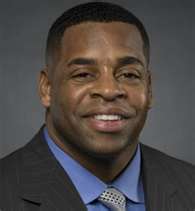Florence v. Board: With Proactive Policing at Issue, Supreme Court Backs Discretion
I’ve been working through my backlog of reading from the academic year, including the Supreme Court’s April decision in Florence v. Board of Chosen Freeholders of County of Burlington. This is the decision in which the Court upheld the use of routine, suspicionless strip searches of individuals arrested and jailed for minor offenses.
It strikes me that part of what was really at issue in the case went unmentioned by both the majority and the dissent. The case is framed on both sides as being about corrections administration, but it is perhaps just as much about policing – how much discretion are we going to give police to detain citizens and impose on them the humiliation, stigma, and danger of incarceration with a general jail population. This discretion seems a powerful tool in support of proactive, crime-preventive policing, but it is also prone to abuse and seems hard to reconcile with ideals like checks and balances and “innocent until proven guilty.”
Writing for the Florence majority, Justice Kennedy presented the case as a conventional prisoner rights case.


